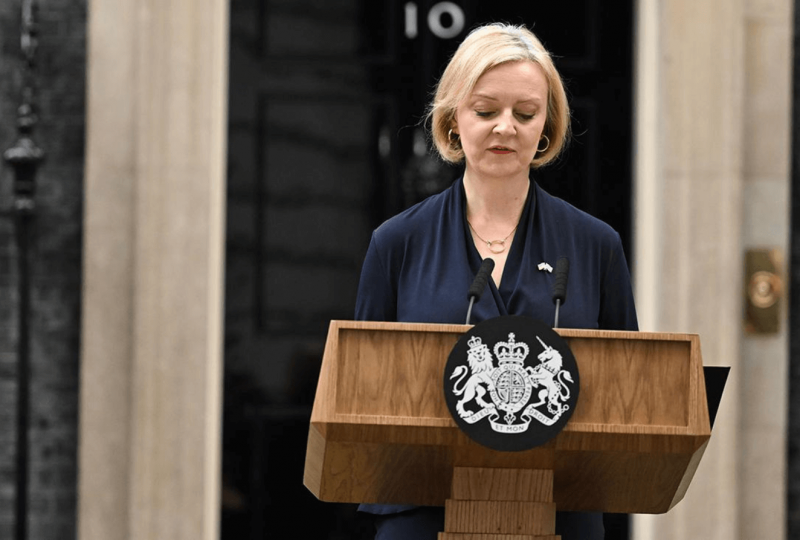U.K. Markets React Positively to Liz Truss Resignation
Oct 24, 2022

British investors applauded Prime Minister Liz Truss' departure after her latest budget plans shook markets and led the Bank of England to intervene.
Stocks, bonds, and the pound rose early Thursday as rumors circulated in British media that Conservative Party legislators were urging Prime Minister David Cameron to leave Number 10 Downing Street. Truss said in a news conference soon after 1:30 p.m. London time that she will quit as prime minister after only 45 days in the position, making her the shortest-tenured British leader in history.
"I am unable to fulfill the mandate for which I was elected by the Conservative Party. I have consequently informed His Majesty The King that I am quitting," Truss stated. "A leadership election will be held within the following week... I shall serve as Prime Minister until a replacement is named."
The FTSE 100, the UK's blue-chip stock index, increased 0.3%, while the FTSE 250, the mid-cap index, jumped 0.9%. Earlier in the day, both indices were in the red.
Government bond yields, known as gilts, fell as the prices of both short- and long-term bonds rose. The yield on the 2-year gilt fell to 3.49% after starting at 3.52%, and the yield on the 10-year gilt fell to 3.87% after opening at 3.96%. The 30-year gilt yield fell from 4.06% to 3.90%.
The British pound rose 0.8% versus the dollar, reaching $1.13 from $1.12.
"The market can have some brief comfort that there will be no more Truss-style economic initiatives." "The resignation of Liz Truss heralds the conclusion of a disastrous few weeks," said William Marsters, a trader with Saxo Markets. "Sterling's snakes and ladders game is far from done, but the pound is unlikely to show many indications of long-term recovery."
Truss was voted as the replacement for former Prime Minister Boris Johnson during the summer when Johnson was forced to leave due to a controversy with Covid-19 rules violations. Truss' term, which began two days before Queen Elizabeth II's death, was distinguished by budget provisions that included £45 billion ($51 billion) in unfunded tax cuts.
The recommendations, which resulted in the removal of Chancellor of the Exchequer Kwasi Kwarteng, stunned markets, causing gilt yields to rise to an unprecedented high and driving the pound to an all-time low versus the dollar. It also caused the Bank of England to take unusual emergency action, promising to buy gilts on the open market to help shore up rising losses at pension funds, which are key holders of government debt.
Much of the pandemonium that shook the British financial system has abated after the budget provisions were dropped, but some analysts are concerned about long-term harm to the United Kingdom's image in markets.
"The United Kingdom will continue to be perceived as politically unpredictable in financial markets," said Susannah Streeter, an analyst at Hargreaves Lansdown. "What investors want is greater consistency and dependability, but until they know who will take control and manage an economic recovery, that stability remains elusive, which means that neither sterling nor equities are likely to make big improvements."




